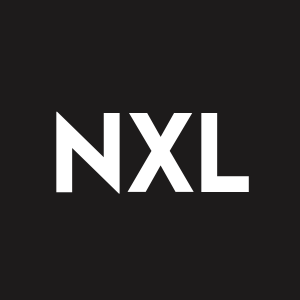Nexalin Technology Completes Phase 1of its Innovative Virtual Clinic
Rhea-AI Summary
Nexalin Technology (NXL) has completed Phase 1 of its proprietary virtual clinic, incorporating AI components for Electronic Data Capture (EDC) and Patient Monitoring System (PMS). The virtual platform is designed to enable clinical trials and treatments to be conducted remotely from patients' homes while providing real-time data to physicians.
The system will support Nexalin's Generation 3 Halo Device, a non-invasive headset that delivers 15mAmp deep frequency stimulation to treat mental health conditions including depression, insomnia, Alzheimer's disease, and addiction. The Halo device requires FDA clearance and physician prescription.
The EDC platform enables real-time data collection during trials through a smartphone application, while the PMS allows clinical teams to monitor patient progress and make treatment adjustments. The virtual clinic includes telemedicine features for direct patient-physician communication.
Positive
- Development of AI-based virtual clinic platform completed Phase 1
- Platform enables remote treatment delivery and monitoring, expanding market reach
- Integration of real-time data collection and analysis capabilities
- Clinical data supports safety and efficacy of 15mAmp waveform treatment
Negative
- FDA clearance still required for Gen-3 Halo Device
- Product requires prescription and physician monitoring, limiting accessibility
News Market Reaction
On the day this news was published, NXL declined 0.38%, reflecting a mild negative market reaction.
Data tracked by StockTitan Argus on the day of publication.
AI Components for Electronic Data Capture and Patient Monitoring to be Integrated into Phase 2
HOUSTON, TX, Dec. 23, 2024 (GLOBE NEWSWIRE) -- Nexalin Technology, Inc. (Nasdaq: NXL; NXLIW) (the “Company” or “Nexalin”) the leader in Deep Intracranial Frequency Stimulation (DIFS) of the brain, is pleased to announce the launch of Phase 1 of its proprietary virtual clinic. The virtual clinic will utilize artificial intelligence (AI) and Nexalin’s new Electronic Data Capture (EDC) platform and Patient Monitoring System (PMS). This AI ecosystem is designed to allow the entire clinical trial process—and ultimately the treatment experience—to be conducted virtually in the privacy of patients’ homes while providing physicians with real-time digital data related to the patient’s treatment experience. This innovative AI platform is being designed to manage Nexalin’s virtual clinic and clinical research capabilities, as well as streamline the patient experience for its Generation 3 Halo Device.
Recently, Nexalin announced its plan to transition its groundbreaking brain-stimulation technology from traditional mental health clinics into patients’ homes with the Gen-3 Halo headset. The Halo headset administers Nexalin’s 15mAmp deep frequency stimulation to the brain. The entire treatment process is non-invasive and undetectable to the patient. Clinical data supports the safety and efficacy of Nexalin’s advanced 15mAmp waveform for addressing mental health challenges, including depression, insomnia, Alzheimer’s disease, addiction, and other conditions. The Halo headset requires FDA clearance as a medical device, along with a prescription and monitoring by a physician. Halo is designed to be used in the privacy of a patient’s home, in an AI-based virtual setting while supervised by a licensed physician.
Phase 1 of Nexalin’s virtual clinic also introduces the proprietary Electronic Data Capture (EDC) platform, which enables efficient real-time data acquisition and analysis during clinical trials. Integrated with a patient-friendly smartphone application, the AI-based system will allow users to initiate treatment sessions virtually. Treatment data is automatically and securely uploaded to the cloud, ensuring compliance with diverse study protocols and providing actionable insights.
Nexalin will also configure its AI platform to include a Patient Monitoring System (PMS) to enhance the treatment experience. Through its interactive smartphone application, clinical teams can monitor patient progress, analyze adherence to treatment protocols, and make real-time adjustments as necessary. The virtual clinic will also include a built-in telemedicine feature, enabling direct communication between patients and Nexalin’s Brain-Health clinical team, ensuring personalized care and support throughout the treatment process.
Both the EDC and PMS systems were custom-developed by Trial-Track to Nexalin’s specifications. Reynold Yordy, CTO of Trial-Track, expressed his enthusiasm, “We are thrilled to collaborate with Nexalin, a company leading the way in AI-based neurostimulation technology. We are confident that Phase 1 of Nexalin’s virtual clinic, incorporating the EDC and PMS, will greatly enhance the clinical trial experience for patients and set a new standard of care for individuals struggling with mental health challenges.”
Mark White, CEO of Nexalin, remarked, “This AI platform is a major milestone for Nexalin as we continue to innovate and improve the treatment experience for patients. Our partnership with Trial-Track has allowed us to leverage their technical expertise to create tools that support our Generation 3 Halo Device and virtual, AI-based clinic while driving efficiency in our future clinical trials. This combination of the Gen-3 Halo Device, EDC platform, and PMS represents a significant advancement in our commitment to improving patient outcomes.”
About Nexalin Technology, Inc.
Nexalin designs and develops innovative neurostimulation products to uniquely help combat the ongoing global mental health epidemic. All of Nexalin’s products are non-invasive and undetectable to the human body and are developed to provide relief to those afflicted with mental health issues. Nexalin utilizes bioelectronic medical technology to treat mental health issues. Nexalin believes its neurostimulation medical devices can penetrate structures deep in the mid-brain that are associated with mental health disorders. Nexalin believes the deeper-penetrating waveform in its next-generation devices will generate enhanced patient response without any adverse side effects. The Nexalin Gen-2 15 milliamp neurostimulation device has been approved in China, Brazil, and Oman. Additional information about the Company is available at: https://nexalin.com/.
Forward-looking statements
This press release contains statements that constitute “forward-looking statements,” These statements relate to future events or Nexalin’s future financial performance. Any statements that refer to expectations, projections or other characterizations of future events or circumstances or that are not statements of historical fact (including without limitation statements to the effect that Nexalin or its management “believes”, “expects”, “anticipates”, “plans”, “intends” and similar expressions) should be considered forward-looking statements that involve risks and uncertainties which could cause actual events or Nexalin’s actual results to differ materially from those indicated by the forward-looking statements. Forward-looking statements are subject to numerous conditions, many of which are beyond the control of the Company, including those set forth in the Risk Factors section of the Company's Report on Form 10-K for the year ended December 31, 2023, and other filings as filed with the Securities and Exchange Commission. Copies of such filings are available on the SEC’s website, www.sec.gov. Such forward-looking statements are made as of the date hereof and may become outdated over time. Such forward-looking statements are made as of the date hereof and may become outdated over time. The Company undertakes no obligation to update these statements for revisions or changes after the date of this release, except as required by law.
Contact:
Crescendo Communications, LLC
Tel: (212) 671-1020
Email: NXL@crescendo-ir.com










